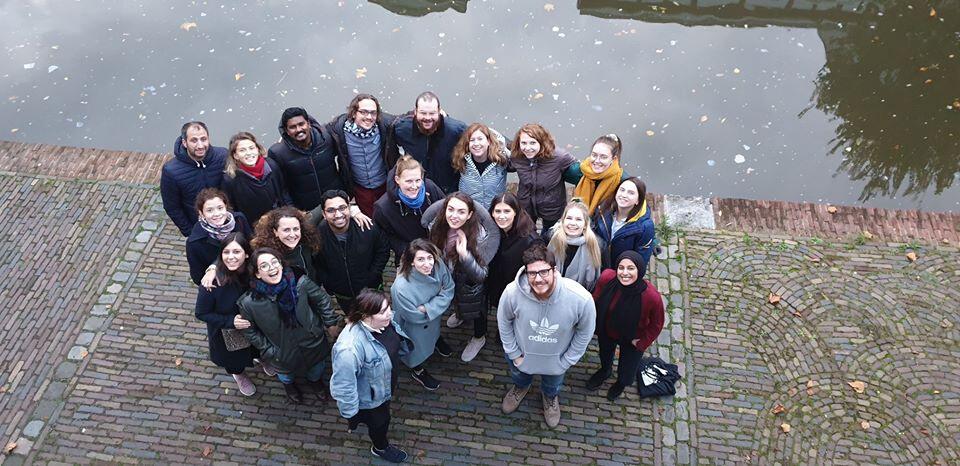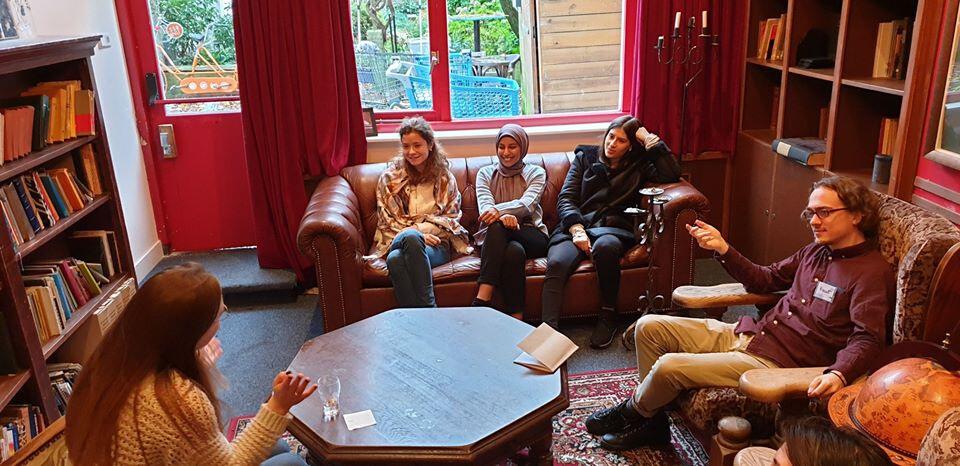
2 minute read
NATIONALSCOPINGSTUDYONYOUTHEXTREMISM January-June2019
We are living in a reality in which more and more young people carry right-wing extremist views and marginalise groups of immigrants, refugees, religious and ethnic minorities, LGBTQ+ communities and others In response to widespread hate rhetoric and crime, some marginalised groups resort to isolation, feeling excluded from the mainstream society, which can in turn lead to extremism in other forms and at other levels. We decided to dedicate 2019 to identifying, preventing and combating extremism among young people, by utilising faith-based approaches as powerful tools to counter this growing concern in our society. With this aim in mind, we conducted the National Scoping Study on Youth Extremism, which had a particular focus on extremism leading to violence and on responding to the question: ‘what exactly is that we are dealing with when it comes to challenging radicalisation and extremism, including violent extremism, in our societies?’.
The study aimed to identify and understand the factors contributing to extremism leading to violence amongst young people and explore how a faith-based youth work, as one possible approach, can be used to prevent and tackle it. We identified three specific objectives, among which:
Advertisement
To provide a review of the current situation in member countries, as young people see and face the everyday reality of growing extremism and radicalisation;
To identify areas where faith-based youth work can contribute to the root factors that fuel youth extremism leading to violence, at both the local and national level;
To identify and showcase faith-based good practices, which can inspire youth-led solutions at the local, regional and national levels
The project leadership team worked with young leaders from the WSCF-Europe member movements to explore how young people make sense of, and experience, their society, particularly when it comes to exclusion, radicalisation and extremism. Indeed, the scoping study helped us to identify: the factors contributing to extremism leading to violence; the role of religion; how a faith-based youth work can contribute to prevent and tackle it
The study covered many countries - Germany, the United Kingdom, Ukraine, France, Kosovo, Belarus, Italy, Austria, Ireland, Finland, Greece, Georgia, the Netherlands, Hungary and Spain –and provided an important contribution to the existing resources that shape better mechanisms of combating youth extremism leading to violence in Europe.


The second part of our 2019 work plan was comprised by the National Youth-led Initiatives, which focused on a variety of issues of local and national importance that are relevant to youth radicalisation and extremism leading to violence in Europe, and ways of combating it Through this part of the project, WSCF-Europe offered its member movements in Europe to work on the ground and address the issues they identify as root causes of youth radicalisation and violent extremism


The youth-led initiatives were implemented in four countries - Ukraine, Germany, Belarus and North Macedonia – and were facilitated by WSCF-Europe’s Cmapaigns Coordinator and by the members of the SCMs, in partnership with other faith-based youth organisations
Through these youth-led initiatives we managed to reach out and engage a large number of young people The project succedeed in raising awareness amongst young people, stakeholders and wider public on youth radicalisation and violent extremism and their root causes. It also helped to support and provide opportunities to young people, especially those from Eastern European countries, to challenge and change youth extremism and wider issues that lead to it
All the activities undertaken proved that active Christian young people stand together to promote and celebrate diversity, equality and inclusion, and that they can become active voices in preventing extremism, discrimination and violence.









